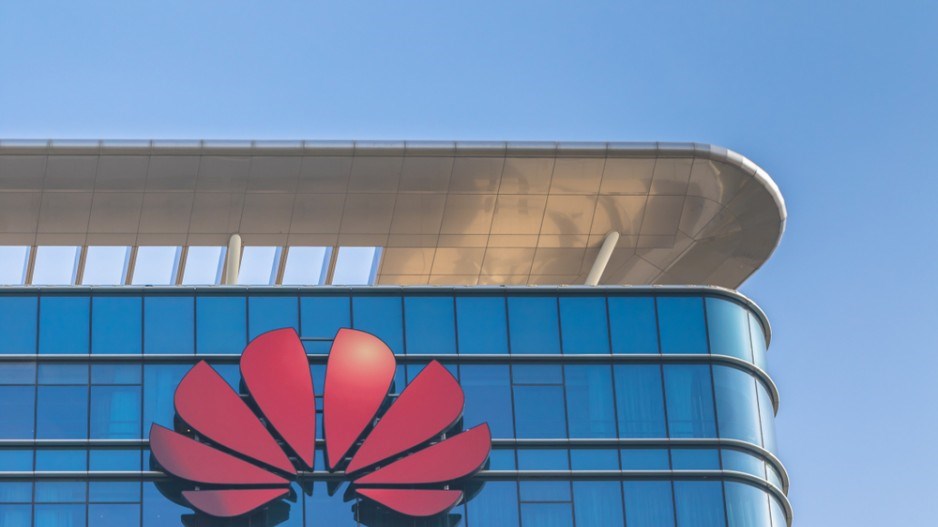If three consecutive national intelligence chiefs suggest re-examining Canada’s security policy on Chinese telecommunications giant Huawei, then it should be done, Canada’s former privacy commissioner says.
Canada has yet to join its international Five Eyes intelligence partners in banning use of Huawei’s next-generation mobile communications software. That’s despite multiple suggestions Ottawa take action to prevent possible security threats posed by Huawei infrastructure becoming joined with Canada’s.
New Zealand, Australia and the United States have banned usage, two U.S. senators going as far as to implore Prime Minister Justin Trudeau to act, expressing concerns about Canada’s telecommunications security and a company they assert is beholden to the Chinese government and military.
The threat many see is that Chinese companies are called on to be loyal to Beijing, and could be asked to supply intelligence derived from infrastructure in countries where they operate.
Huawei technology remains in place in various Canadian communications systems including widespread usage through Saskatchewan’s provincial SaskTel utility.
Premier Brad Wall was on hand in Beijing for the signing of a 2012 agreement that saw Saskatchewan launch a broadband wireless service for rural areas after Huawei outbid Bell and Telus.
The University of Regina soon signed on with Huawei to provide wireless technology in cooperation with the Faculty of Engineering and Applied Science, a faculty Huawei cooperates with at other universities.
Soon after, the Athabasca Basin Development received a Huawei donation of $385,000 toward a $5.8 million project bringing 4G cellular service to five communities.
Computing infrastructure is also in place at multiple Canadian universities, which have either bought it or accepted donations from the company – despite specific warnings from the Canadian Security Intelligence Service.
Former privacy commissioner Chantal Bernier said in a 2014 report that “the evolution of security threats to open, democratic states – combined with the speed and power of technical surveillance practices and the desire to prevent or prepare for attacks of violence – create a pressing issue for democratic states to confront.”
“Countries are committing espionage to obtain information for negotiations, military plans, intellectual property and business strategies for their own competitive edge,” her report said. “They are also developing cyber tools to threaten the computer systems that run critical infrastructure.”
If Huawei moves ahead in Canada, there are fears its technology would become part of Canada’s information architecture, the data possibly available to Beijing.
Now, Bernier said it’s time to look at the situation again in light of Chinese threats identified by Canada’s intelligence community.
“As a matter of transparency, the government should state the process through which it did or will give it proper examination,” she said. “We should give it a second look.”
House of Commons opposition parties have repeatedly raised questions about Huawei and threats it may pose to Canadian cybersecurity.
However, questions have been responded to with promises from Minister of Public Safety and Emergency Preparedness Ralph Goodale for a new cybersecurity centre and pending results of a national security review of cybersecurity systems.
A 2017 review found growth of the internet, digital networks and mobile device use by individuals, governments and businesses has been matched by the growth of cyberspace threats.
“As a result, a growing number of nation states are attempting to establish their presence in the cyber domain,” the review said.
The review said public institutions and Canadian companies are targets of cyberattacks by both states and non-states.
And, while Huawei has stressed repeatedly it will meet standards of countries in which it works, many doubt company claims.
Indeed, it’s such a situation that led to the arrest of Huawei’s chief financial officer Wanzhou Meng in Richmond, B.C. December 1 under a U.S. extradition request based on allegations of company fraud regarding Iran.
That move, however, could be part of a greater U.S. strategy of containment of China. The U.S. has been investigating Huawei and fellow Chinese telecom company ZTE around possible sanctions violations on Iran and North Korea. However, such targetings may also be pretexts to hobble Chinese companies as the U.S. tries to preserve markets in the face of Chinese expansion.




